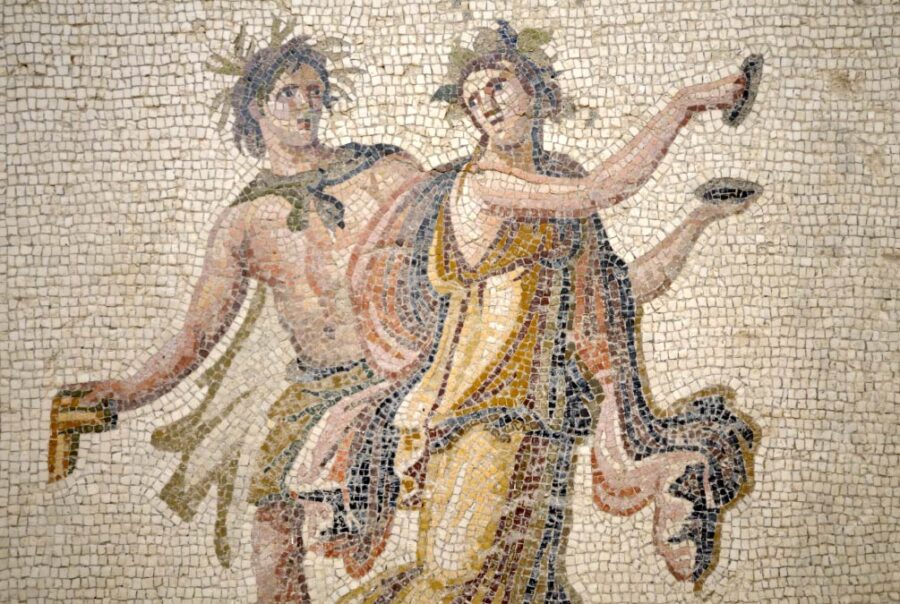Over the past month or so, I have been making my way through the book of Jeremiah. Sometimes I read through a number of chapters and at other times, something sticks with me from the text and I can’t get past a few verses. This happened about a week and a half ago as I read Jeremiah chapter 31. More specifically, Jeremiah 31:1-6. I am just now starting to move beyond the text, but for a good week or so this text captivated me. I want to share a brief meditation on the passage. Before I get into the text, I want to tell you a story from my life. Though I’m not a huge fan of getting uber personal on a blog, I do think the story will help with the meditation in the text. My goal, ultimately, is to encourage those who feel like they are in a time of spiritual exile.
I can still remember August 27, 2008 like it was yesterday. It was by far one of the most brutal days of my life. During April of 2008, I had been hired on as a college/mercy ministry pastor at a church in inner city Los Angeles. It was a dream job. The church offices were in World Trade Center, right in the heart of downtown and it was a new church plant. It was a part time gig that I planned to be at for at least four years while I was working on a couple of Masters’ degrees. I had graduated from Biola University in May of 2008 with my Biblical and Theological Studies degree. Everything was going just how I had envisioned it would go. Then everything changed in the span of a few weeks, culminating on August 27, 2008. I had really liked a girl at school and was finally coming to realization that it wasn’t going to work out. This was the beginning of August. Tough blow for an inexperienced young guy. Then on August 27, the lead pastor called me into his office. He told me that he was, “going to let me go.”[i] I had made a couple of administrative errors during my green pastoral tenure at the church. To top it all off, classes were supposed to start the next day at Talbot. So that was that, in one moment, everything I envisioned for the next four years, vanished. Devastated, I called the only person I knew to call, my father. Through tears, I tried to wrestle with what had just happened.
After flying home for two weeks to sort through my options, I made the decision to move back to Colorado. I flew back to California to get my stuff and in the four days that I was back, I managed to accidentally run a red light and the ensuing accident completely mangled my car. I had stayed with a Christian family that summer as I was waiting to move into a house with some friends when school started up again. I remember walking into their house after the accident, sitting on the couch, putting my face in my hands and sobbing, “What is happening to my life? What is happening to my life?”
Things didn’t get any easier when I moved home. We were smack in the middle of a recession. So I came home and started applying for jobs. I finally got offered a job as a teller at a local bank. It didn’t pay much but I knew that I needed to work. The next year was difficult. And I will be the first to confess that the difficulty was compounded by my own sinful discontentment. I saw friends getting married, landing solid paying jobs out of college and not living at home with their parents. If there is one word that I could use to sum up that time of my life it would be: exile.
Before we come to our text in Jeremiah 31, it is important to remember that the first 30 chapters of Jeremiah are littered with proclamations of judgment and very few hints of God ever relenting. The Israelites sin seems to find its foundation in idolatry. We are told, “…my people have committed two evils: they have forsaken me, the fountain of living waters, and hewed out cisterns for themselves, broken cisterns that can hold no water” (Jer 2:13). We see the accusations continue to pile up at the beginning of the book with God telling the people of their whorish ways, “For long ago I broke your yoke and burst your bonds; but you said, ‘I will not serve.’ Yes, on every high hill and under every green tree you bowed down like a whore.” (Jer 2:20, also see Jer 3:1-3, 20; 5:7). And then in chapter 10 we get perhaps one of the sharpest expositions of Israel’s wicked idolatry. In chapter 10 we find a distinct contrast between the gods of this world and Yahweh. The idols of the people are, “like scarecrows in a cucumber field, and they cannot speak; they have to be carried, for they cannot walk. Do not be afraid of them, for they cannot do evil, neither is it in them to do good” (Jer 10:5). This is in contrast to Yahweh about whom Jeremiah says, “But the Lord is the true God; he is the living God and the everlasting King. At his wrath the earth quakes, and the nations cannot endure his indignation” (Jer 10:10). For Jeremiah, there is one true God and he alone has the power to do good or do harm. Ultimately the Israelites problem was the same problem described by the apostle Paul when he says that all of humanity has, “exchanged the glory of the immortal God for images resembling mortal man and birds and animals and reptiles” (Rom 1:23).
I wish I could say that the above situation was a time in my life when I walked about the earth with a righteousness like Job. But I know I didn’t. I had my idols too. We all do. I craved recognition and a “big spot” in ministry as quick as possible. I was looking to so many other things in my life to provide blessing that there is little doubt in my mind that my situation was direct discipline from God. He was sending me into “exile,” reducing me to nothing. This was the end result for the Israelites as well, as God promised to give them over into the hands of the Babylonians in order to punish them (Jer 25:9).
But the story never ends with exile. It can’t. Not with a God who is covenentally faithful. It hasn’t ended there for me and it didn’t end there for the Israelites. And it doesn’t end there for any of God’s children. In chapter 31 we find out that there may be some relief in sight. Jeremiah 31:1-6 reads:
At that time, declares the LORD, I will be the God of all the clans of Israel, and they shall be my people. Thus says the LORD: The people who survived the sword found grace in the wilderness; when Israel sought for rest, the LORD appeared to him from far away. I have loved you with an everlasting love; therefore I have continued my faithfulness to you. Again I will build you, and you shall be built, O virgin Israel! Again you shall adorn yourself with tambourines and shall go forth in the dance of the merrymakers. Again you shall plant vineyards on the mountains of Samaria; the planters shall plant and shall enjoy the fruit. For there shall be a day when watchmen will call inthe hill country of Ephraim: ‘Arise, and let us go up to Zion, to the LORD our God.
Though Israel has trespassed the law of God and played the whore, God promises to renew his faithfulness to her. The times in life where it seems that exile will have no end can be oft unrelenting. But there is an end. A promised end. The reprieves from exile in this life time are but a shadow of the eternal reprieve from exile. But the times when God brings us back from a time of “exile” on this earth give us a foretaste of heaven, when our bonds are finally burst in their entirety. The text above shows us that God is a covenant God. In verse three, we see that God’s love is an everlasting love. The tie to the everlasting nature of the covenant is unmistakable for in Genesis we read, “And I will establish my covenant between me and you and your offspring after you throughout their generations for an everlasting covenant” (Gen 17:7). Additionally, we see the amazing redeeming renewal of God’s faithfulness toward his people. Note how he calls Israel, “virgin Israel,” in verse 4. This is the same Israel that was originally classified repeatedly as a whore. The redeeming love of God has a way of making something out of nothing. Of turning barren times in life into times when, “you shall plant vineyards on the mountains of Samaria; the planters shall plant and shall enjoy the fruit.” The land that was once dry and dusty, now yields a harvest beyond measure.
Two weekends ago, an exile that seemed to have lasted nearly three years turned into a time of planting vineyards for me. Many big events, all in one weekend. On Saturday September 24th I spent a grueling three hours defending my doctrinal statement, philosophy of ministry and much more before a crowd at my home church. The church voted unanimously to call me as missionary to Muslim peoples. On Sunday, the call was made official as I was commissioned during the Sunday service. There is no real adequate way to describe the joy and satisfaction that filled my heart that weekend. In addition to all that, I had a beautiful Godly woman by my side that I care for deeply. I celebrated with friends and family alike that weekend. When all was stripped away on August 27 2008, it seemed like everything was taken. When so much was given on September 25, 2011, it seemed like a blessing beyond anything I could ever imagine. Our sovereign king had a better plan than I did. He brought me out of a time in which the darkness would not lift. He brought me out of a time of exile.
There are, doubtless, a number of Christians out there who feel like they are in a time of exile. Perhaps you are there because of your own sin, perhaps not. In this time, I wish I had known what I know now: the exile will end because my savior is faithful. We can trust in God’s covenant love in the midst of the exile, knowing that though he slay us we can hope in him (Job 13:15). And when the exile ends and the dark clouds of providence break, I hope you will join me in the dance of the merrymakers.
[i] I want to let my audience know that the lead pastor and I went through an amazing time of restorative redemption in our personal relationship nearly a year after this event. He is still a friend to this day.





1 Comment
Leave your reply.